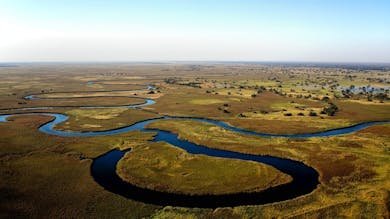Skip to content
Click the triangle for more information!

In the last decade, 80 million acres of land has been “land grabbed” - an area the same size as Portugal.
Land grabbing is the issue of large scale buying and selling of land by wealthy governments, individuals and companies, which majorly affects small scale farmers and MAPA in critical food deserts.
The practice leads to the forced, nonconsensual, eviction of MAPA communities. Land grab laws justify human rights abuse and take away the indigenous land rights of the people that live and depend on the land.
Land grabbing often occurs between the Global North taking from MAPA for the sake of increased free trade, where MAPA would be taking their land to be used as agriculture by investors. This is essentially forced eviction of MAPA communities without the communities consent. It takes place through long-term lease contracts for 50 or even 90 years where National legal instruments often enable such swift land purchases.
Land grabbing sparked in 2008 when the financial crisis caused governments to take massive amounts of fertile land in hopes of foreign agricultural gain, taking 30 million acres in Africa.It is further backed up through loose legislation that promotes capitalism and free trade in the midst of the recession. Economists suspect that there may be another land grab rise post-COVID lockdown, taking away indigenous land rights for the .
Individuals can take part in land grab if they are wealthy, often with the claim of creating new jobs. A shows false claims of a wealthy resident who buys land in promise of making a farm and creating lots of new green jobs. Meanwhile, the school nearby is constantly out of money and Flint is undergoing a water crisis. Land grabbers tend to utilize outdated policies as the land can be exploited for 50+ years on end and laws could be fabricated to make neocolonialism more legitimized. Mark Zuckerberg committed land grab when he took 4 land parcels along with his 700 acre estate, making a Hawaiian family bid for their land. Zuckerberg justified the auction through high pressure sales tactics and the outdated Kuleana Act of 1850.
Land grabbing can also occur through international relations. As of 2016, the USA acquired 2.2 million acres from DRC, 2 million from Papua New Guinea, and 1.4 million from South Sudan The EU-Mercosur agreement of free trade will promote land grab as it demands 30% increase in beef export which means that the government will take away from the small farmers in the Amazon and take away further human rights, along with mass deforestation of the Amazon.
Land grabbing has also been associated with violence targeted especially towards the indigenous. In Uganda thousands of families were held at gunpoint by Kiryandongo Sugar Limited for growth of cane sugar for the industry. The EU-Mercosur deal increased legitimacy of land grabbing in the Amazon, with “rainforest mafias” allowed by Bolsonaro to kill small-scale farmers and indigenous in the way. 300+ people have been killed between 2010 and 2019 due to the “rainforest mafias” according to the Pastoral Land Commission.
Land grabbing further promotes eco-capitalism, as trade and economy is emphasized for the sake of exploiting land and ignoring indigenous land rights. Land grabbers can often propose deals that promise new jobs and agriculture, while doing the opposite. Since land grabbing disproportionately occurs in food deserts, this proposal convinces the government to give the land. It is often masked as urban planning, which makes it harder to stop land grabbing.
Polluter companies have taken a major role in this through gold mining in both Brazil and Papua New Guinea. In Papua New Guinea, 250 families were relocated for the major gold mining by Geopacific Resources, an Australian gold mining company. They were further reported of 12 million tonnes since 2019 of tailing which severely pollute PNG’s nearby sea resource. Michelin continues to exploit Cambodia and Laos while harassing residents for the rubber industry. In Indonesia, the residents' protests against Michelin were responded with violent police brutality, and the fight continues today.
Want to print your doc?
This is not the way.
This is not the way.

Try clicking the ··· in the right corner or using a keyboard shortcut (
CtrlP
) instead.
